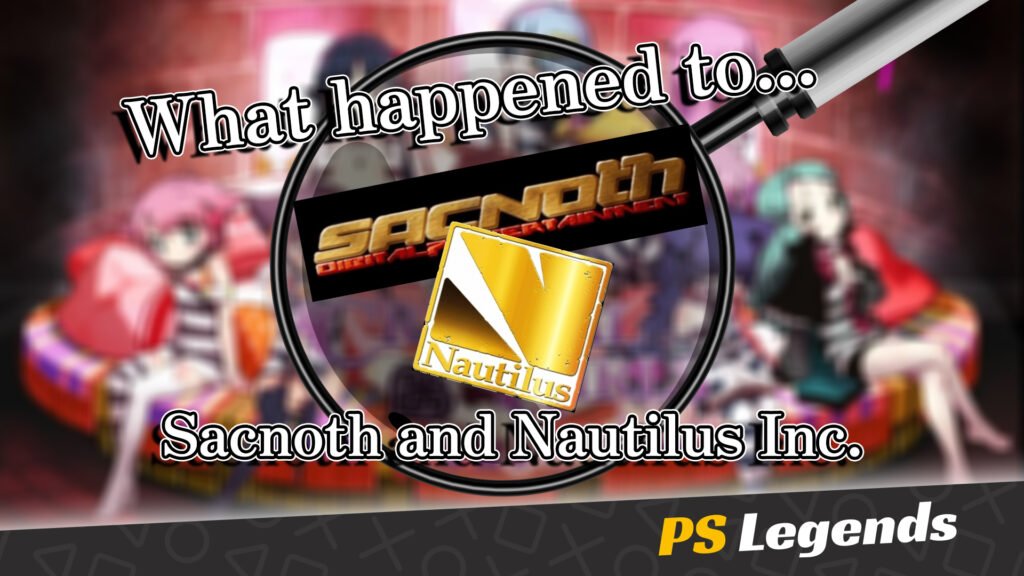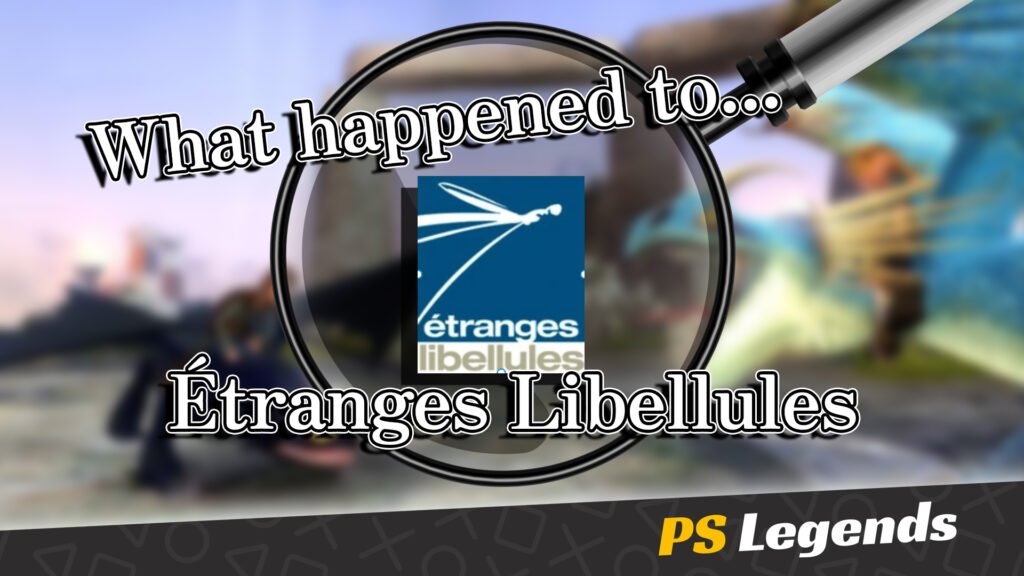The Square Split
Sacnoth Inc., renamed Nautilus Inc. in 2002, was a Japanese video game developer based in Tokyo. The company was founded on April 30th, 1997 by Hiroki Kikuta, a former composer for Squaresoft who worked on Secret of Mana, Trials of Mana and Soukaigi. While at Square, Kikuta wanted to direct his own game but, due to the strict hierarchical structure at the company, could not move beyond his role as a composer.
Searching for a means of expanding his role, he was introduced by a business advisor to the chairman of SNK. During their talks, Kikuta outlined many perceived pitfalls he saw emerging in the JRPG genre which impressed SNK. SNK agreed to fund Sacnoth with Kikuta as its CEO. While SNK provided funding for the company, it had little involvement in its products and creative direction, with SNK’s Norimasa Hirano describing Sacnoth as an independent developer. Kikuta’s team was comprised of fellow Squaresoft veterans.
Sacnoth is noted as being one of a group of video game companies (alongside Monolith Soft, Love-de-Lic and Mistwalker) founded by Squaresoft/Square-Enix staff who had worked on notable titles produced during the JRPG ‘Golden Age’ of the 1990s.

The Trouble With Greatness
While their first releases were the Dive Alert games, the company was founded to produce Koudelka, a role-playing game for the PlayStation which was developed simultaneously. The Dive Alert games were their first releases in Japan and were promoted as part of the Neo Geo portable’s early line-up. It was also one of the last NGPC games released in North America.
Koudelka was born from Kikuta’s wish to create a “horror RPG”, beginning development of the title following the company’s foundation. Kikuta acted as the game’s director, producer, writer and composer. His original plan for the gameplay and combat was to combine mechanics from simulation and adventure games, breaking away from RPG trends. The rest of the staff were reluctant to do this, and they instead created a traditional turn-based battle system without his involvement or consent.
The development of Koudelka was troubled due to creative differences between Kikuta and the rest of the staff, with Kikuta resigning as CEO following the game’s release in 1999 and being replaced by Jun Mihara. Kikuta would go on to found the music label Norstrilia. The last game developed by Sacnoth under SNK was Faselei!, a tactical RPG released in 1999 for the NGPC. During this period, SNK ran into financial troubles and was bought out by Aruze in January 2000. Faselei! was one of the last games produced for the NGPC, as Aruze pulled the console from sale in June 2000.

Shadow Hearts
Following Koudelka, the company went on to begin development of a more streamlined and ambitious sequel for the PlayStation 2. This game would be the first in the Shadow Hearts series, written and directed by Koudelka art director Matsuzo Machida. Using the setting of Koudelka, Machida created a traditional JRPG that blended Lovecraftian horror with alternative history. Released in 2001, Shadow Hearts was the first JRPG published by Aruze and the last game developed under the Sacnoth name.
In November 2002, Sacnoth was also acquired by Aruze and renamed ‘Nautilus’, carrying over its original staff. The responsibilities of Nautilus were divided between developing further Shadow Hearts titles and supporting the production of Aruze’s pachinko machines. The company’s first title under the Nautilus name was Shadow Hearts: Covenant, a sequel to Shadow Hearts featuring many of the same staff. Using feedback from the first Shadow Hearts, Machida added more comedic elements. Covenant was released in Japan in 2004. The team also created a director’s cut of the game.

After the release of Covenant, Shadow Hearts: From the New World entered into production. The game was completed on a very tight schedule and focused on refining the battle system of Covenant instead of adding new elements. From the New World is a spin-off featuring new characters to reach a wider audience. The game was released in Japan in 2005, coming to Western countries through third-party publishers over the next two years.
The Shadow Hearts series has gradually gained a strong, positive reception over time and maintained a cult following, with many praising its gameplay design and combination of alternate history and Lovecraftian horror in its dark yet authentic settings. Unfortunately, plans to continue the Shadow Hearts series would not come to fruition.

A Bad Shuffle
By February 2007, Nautilus had become absent from Aruze’s financial statements, prompting rumours that the company had been dissolved. The studio was renamed Aruze Global Trading on September 21st, 2007, during large-scale structural changes within Aruze. Under its new name, Aruze Global Trading was no longer involved in game development. The company would prioritise the manufacture, sale and distribution of pachinko machines.

The company was merged into another Aruze subsidiary, Aruze Marketing Japan, on February 1st, 2009. Aruze Marketing Japan was itself merged into Aruze in June of that year. On November 1st, 2009, Aruze Corporation changed its name to Universal Entertainment Corporation due to financial difficulties. Up until February 18th, 2012, the company owned approximately 21% of Wynn hotel and casino resorts. On February 2nd, 2023, Aruze announced that they had officially filed for Chapter 11 bankruptcy protection in the United States.
Keen to return to traditional game development, several of Nautilus’ staff eventually joined Feelplus, a development support studio which helped co-develop Lost Odyssey (2007), Infinite Undiscovery (2008), Star Ocean: The Last Hope (2009), Ju-On: The Grudge (2009), No More Heroes: Heroes’ Paradise (2010), Ninety-Nine Nights II (2010), MindJack (2011), and Moon Diver (2011). In August 2010, Feelplus was absorbed into AQ Interactive.

Penny Blood
After years of speculation, many Shadow Hearts staff returned to develop Penny Blood, including series creator Matsuzo Machida, character artist Miyako Kato, and Yoshitaka Hirota as lead composer. Machida created Penny Blood to express similar concepts to those explored in Shadow Hearts, though aimed at a more adult audience. The project was revealed as part of a ‘Double Kickstarter’ campaign alongside Wild Arms creator Akifumi Kaneko’s new project, Armed Fantasia. The project was successfully funded within a day of the campaign going live.
Penny Blood is co-developed by Yukikaze, Shade, and Machida and Kato’s own Studio Wildrose, which opened on March 18th, 2019. It is planned for release in 2025 for the PlayStation 5. A spiritual successor to the Shadow Hearts series, the game follows the magically-gifted detective, Matthew Farrell, during the 1920s as he investigates supernatural events stretching across America, Europe, and Asia. It carries over several gameplay elements including turn-based battles infused with real-time elements, and lead character Matthew transforming into a powerful monster during combat.
Machida’s intention was to take the darker themes which had been gradually removed from the Shadow Hearts series over the years and reintegrate them as far as they can within a mature game, though some comedic elements will be retained as in Shadow Hearts: Covenant. While some terminology such as ‘Malice’ and ‘Sanity Points’ are carried over, there is no other known connection to Shadow Hearts. The game’s title is a reference to the Penny Dreadful, a popular style of dark serial literature during the 19th Century, while the logo includes a reference to coins given to the dead. The game is one of the most highly anticipated releases of 2025.


